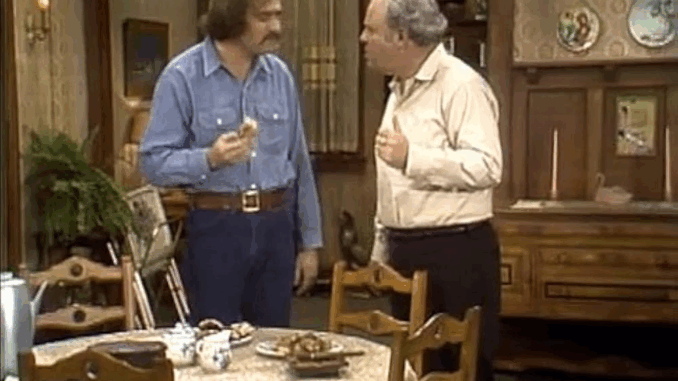
When All in the Family aired “The Bunkers and Inflation: Part 1” during its third season in 1973, America was grappling with a real economic crisis — skyrocketing prices, wage stagnation, and political uncertainty. True to its legacy of confronting real-life issues through sitcom storytelling, this episode stands out as a sharp, humorous, and surprisingly emotional take on working-class anxiety.
Inflation Hits Home for the Bunkers
In this episode, inflation isn’t just a news headline — it’s knocking on the Bunkers’ front door. Archie, played by Carroll O’Connor, finds himself increasingly frustrated by rising prices on everything from groceries to utility bills. As the sole breadwinner in a modest household, Archie feels the squeeze — and the threat — of an economy he doesn’t understand and can’t control.
The writing captures his frustration with brilliant comic timing, but underneath the laughs is a very real portrait of how economic instability affects ordinary families.
A Reflection of 1970s America
“The Bunkers and Inflation: Part 1” aired during a period of stagflation — high inflation paired with unemployment and slow growth. The show’s writers didn’t shy away from the topic. Instead, they leaned into the national anxiety, using the Bunker household as a microcosm of America’s blue-collar struggles.
Archie’s conservative worldview, which once offered him a sense of order, starts to crack under the pressure of economic change. This shift is not only played for laughs, but also creates space for poignant character development.
Family Dynamics Under Pressure
As always, Edith (Jean Stapleton) brings her trademark warmth and quiet strength, trying to calm Archie down while managing the household’s shrinking budget. Gloria and Mike, representing the younger and more progressive voices in the house, clash with Archie over the causes of inflation and possible solutions — from government policy to workers’ rights.
These intergenerational debates are the beating heart of the episode, revealing how each character processes economic hardship differently — through anger, idealism, fear, or compassion.
Humor with a Purpose
What makes this episode brilliant is its balance. The laughs are frequent and genuine — from Archie ranting about “meatless meatloaf” to his suspicion that inflation is a conspiracy against the working man. Yet beneath the comedy is a critique of economic systems that leave people like Archie behind.
By grounding national issues in everyday family life, All in the Family helped viewers not only laugh at their problems but also think more deeply about them.